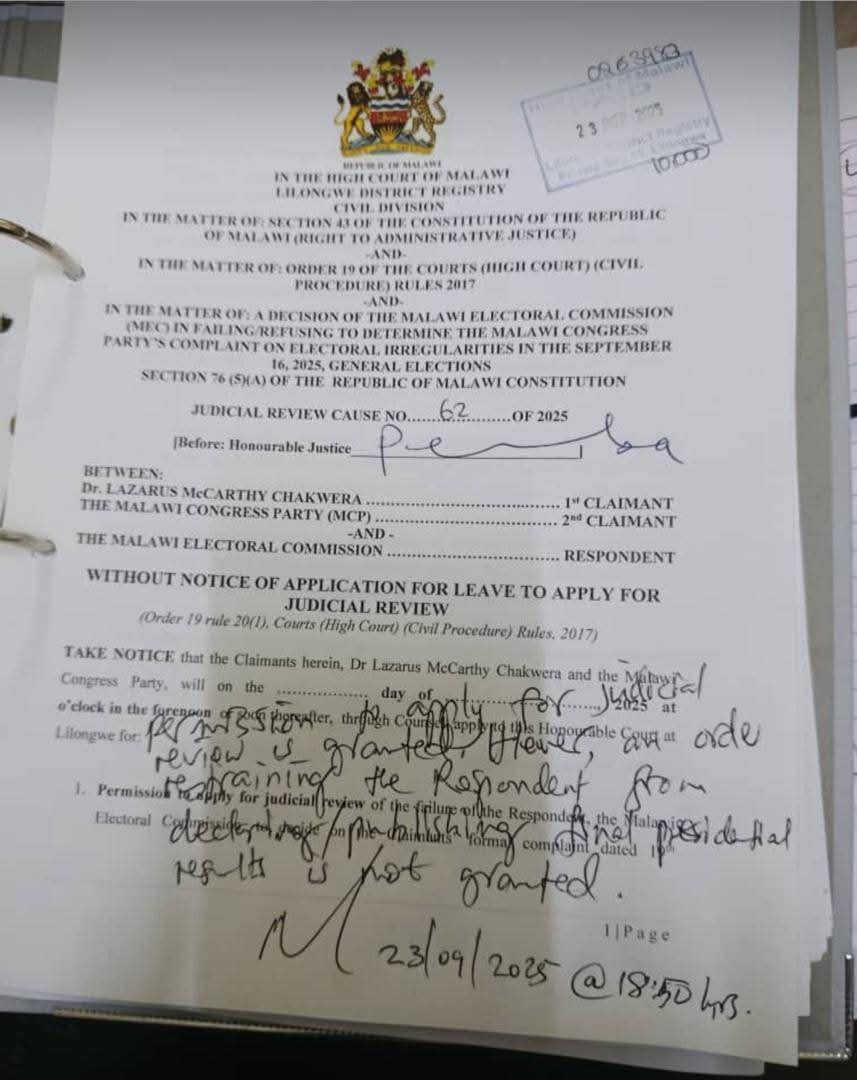By Suleman Chitera
LILONGWE: President Professor Arthur Peter Mutharika has announced that his government will reinstate the affordable fertilizer program, which will allow farmers to purchase a 50kg bag of fertilizer at K10,000 in the upcoming farming season. The program is expected to roll out in the second week of November 2025.
Speaking when opening the parliamentary session in Lilongwe, Mutharika said the initiative is aimed at boosting food security and agricultural productivity in the country.
“My government will bring back the affordable fertilizer subsidy at K10,000 to ensure every farmer has access to essential inputs,” said Mutharika.
1.1 Million Households to Benefit
According to the President, 1.1 million households will benefit from the program. Each household will receive:
Two 50kg bags of fertilizer
One 5kg seed pack
Mutharika emphasized that ensuring farmers have access to affordable inputs is key to ending hunger at household level.
K5 Billion Constituency Development Fund Restored
The President also announced that all 229 constituencies will start receiving K5 billion annually under the Constituency Development Fund (CDF), beginning from the 2026 national budget.
This move is expected to improve infrastructure and local development projects across the country.
K100 Million Youth Empowerment Program
In an effort to tackle unemployment and promote entrepreneurship, Mutharika said each constituency will also receive K100 million specifically for youth programs.
“Our young people must be empowered to support themselves and contribute to Malawi’s economy,” he said.
Fuel Supply Stabilization Measures
The President revealed that his government has abolished the government-to-government fuel procurement system, citing inefficiencies. He said the administration has reinstated the previous procurement approach to address the ongoing fuel shortage challenges affecting the country.
500 National IDs Per Day to Be Produced
On national identification cards, Mutharika said government has procured new machines capable of producing 500 IDs per day, a move expected to reduce long delays that citizens have been experiencing when obtaining National IDs.




